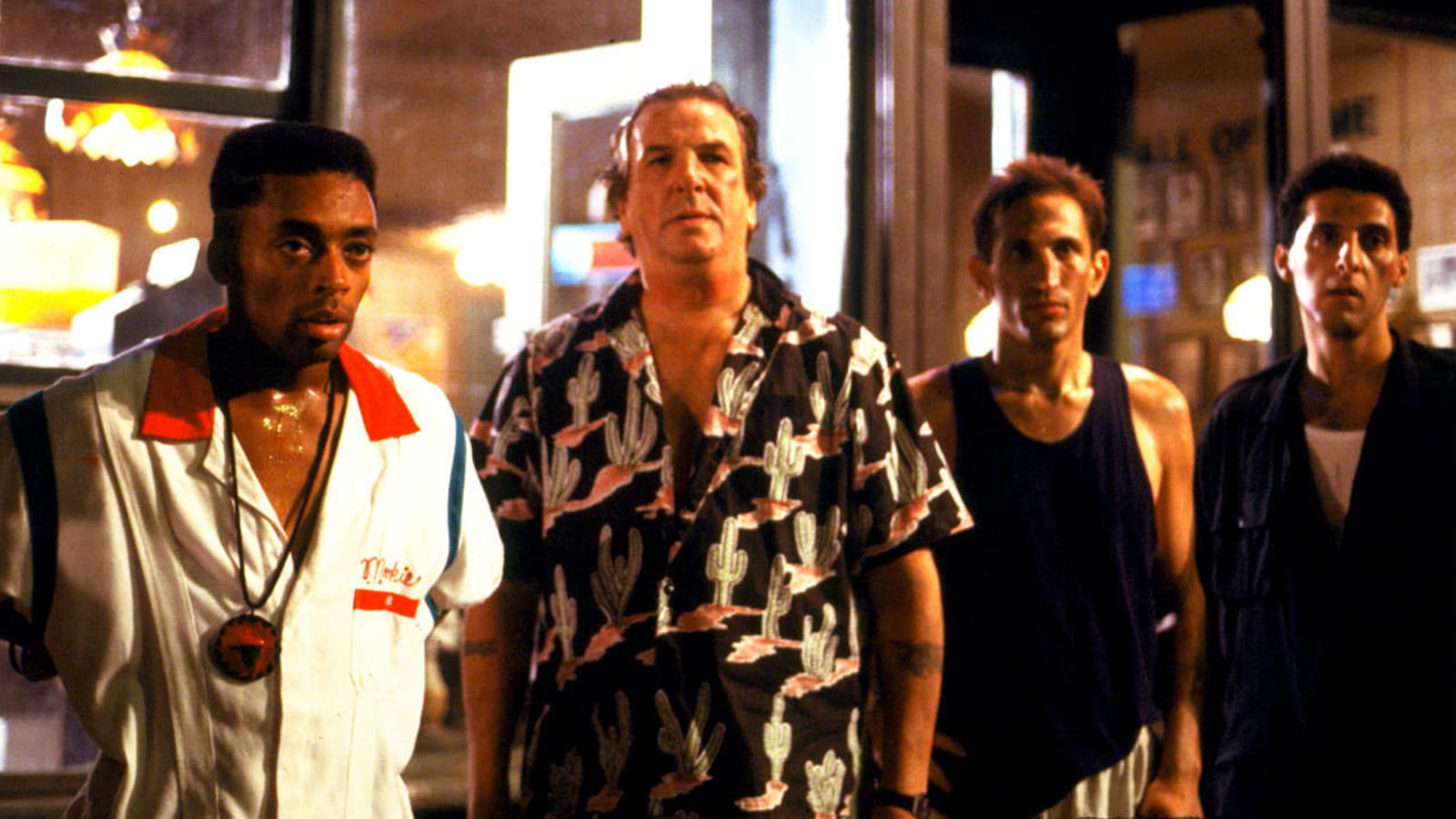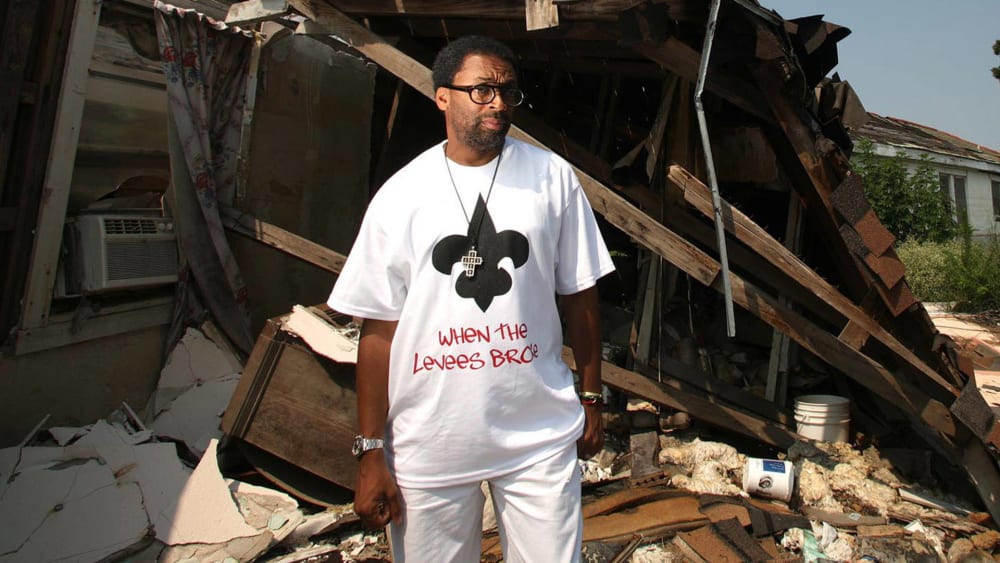
How the 1990 Academy Awards lit the fuse for today's Oscar diversity initiative
In the early morning hours of Valentine’s Day 1990, Karl Malden and Geena Davis announced on behalf of the Academy of Motion Picture Arts and Sciences that the Oscars had very little love for Spike Lee’s “Do the Right Thing.” Two nominations: Best Supporting Actor for Danny Aiello’s portrayal of the pandering pizzeria owner Sal and a thanks-for-playing Best Original Screenplay nod for Lee. That’s all the overwhelmingly white Academy could muster for Lee’s controversial masterpiece.
This wasn’t unexpected. But for those who’d hoped Lee’s incendiary, urban-lens examination of race relations in America might explode the country’s complacency on the topic, it still stung — especially in light of the nine Oscar nominations dished out to the musty white liberalism of “Driving Miss Daisy,” which viewed race relations through the eyes of a rich, elderly white woman (and over the shoulder of her black chauffeur who becomes her best friend). This was Hollywood’s America, the long-ago-integrated utopia where racism had been conquered via the combined efforts of Spencer Tracy (“Guess Who’s Coming to Dinner”), Kevin Kline (“Cry Freedom”) and the FBI (“Mississippi Burning”). “Driving Miss Daisy” was a reassuring victory lap, and it took home four Oscars, including Best Picture, for reminding voters how gosh-darned tolerant they were.
It felt wrong then, and not just because “Do the Right Thing” was the clearly superior piece of filmmaking. Lee’s movie was an urgently needed wake-up call to an America that had spent the last decade seeing inner cities depicted as lawless wastelands begging to be cleaned up by the .44-caliber vigilantism of Clint Eastwood and Charles Bronson. “Do the Right Thing” spends most of its two-hour run time correcting this perspective, establishing its Bedford-Stuyvesant neighborhood as a vibrant community of black folks struggling to keep their cool on a stiflingly hot summer day. It was compelling, hilarious and intensely relatable.
Unfortunately, older white people tended to relate to Sal, the small businessman whose pizzeria is burned down after the cops choke Radio Raheem to death. They viewed Mookie throwing the garbage can through Sal’s restaurant window as a mindless incitement to violence. Though there is no definitive demographic breakdown of the Academy’s 1990 membership, if the AMPAS was 94 percent white with a median age of 62 in 2012 (according to the Los Angeles Times' industry-roiling study of the organization), it’s safe to conclude it was even whiter and older 22 years prior. These were Sal’s people.
To the surprise of no one, “Do the Right Thing” went home empty-handed on March 26, 1990, with Lee losing Best Original Screenplay to Tom Schulman for “Dead Poets Society” and Aiello going down in defeat to Lee’s soon-to-be Malcolm X, Denzel Washington, for “Glory.” Despite Kim Basinger’s unscripted moment of praise for Lee’s film by noting its absence, the ceremony was a quiet affair presided over by first-time host Billy Crystal, but for a wide swath of moviegoers watching at home, there was a sense that a grave injustice had been done.
Lee’s never missed an opportunity to blast the Academy for its tone-deaf preferences in 1990, but he’s always tempered his outrage on this topic by noting that his peers typically get it wrong.
"The Oscars' assessment of a movie's quality usually isn't held up by history,” said Lee in 2008. "That's why they don't matter."
According to the American Film Institute’s 2007 list of the top 100 greatest films ever made (which surveyed “1,500 film artists, critics and historians”), Lee’s got a point: “Do the Right Thing” ranks 96th, while “Driving Miss Daisy” is nowhere in sight.
Under the leadership of AMPAS President Cheryl Boone Isaacs, the Academy has become significantly more diverse. As of 2017, its membership is now 41 percent people of color. Sal’s bloc of voters no longer holds sway over the Oscars. Indeed, it’s unlikely that group would’ve even nominated 2017’s Best Picture winner “Moonlight.”
But when Lee was awarded an amends-making honorary Oscar in 2015 (two months before the #OscarsSoWhite controversy), he directed his vitriol not at the Academy, but at the entertainment industry’s hiring practices as a whole: "In [Hollywood] offices, I see no black folks except for the man who's the security guard who checks my name off the list as I got into the studio.”
He later added, “It's easier to be president of the United States as a black person than be the head of the studio or head of a network."
The lesson of 1990 wasn’t that we needed more nominees of color. It was that we needed more artists and executives and agents of color. The Oscars can’t represent what it can’t nominate.
More must-reads:
Trending in Entertainment
Customize Your Newsletter
 +
+
Get the latest news and rumors, customized to your favorite sports and teams. Emailed daily. Always free!


